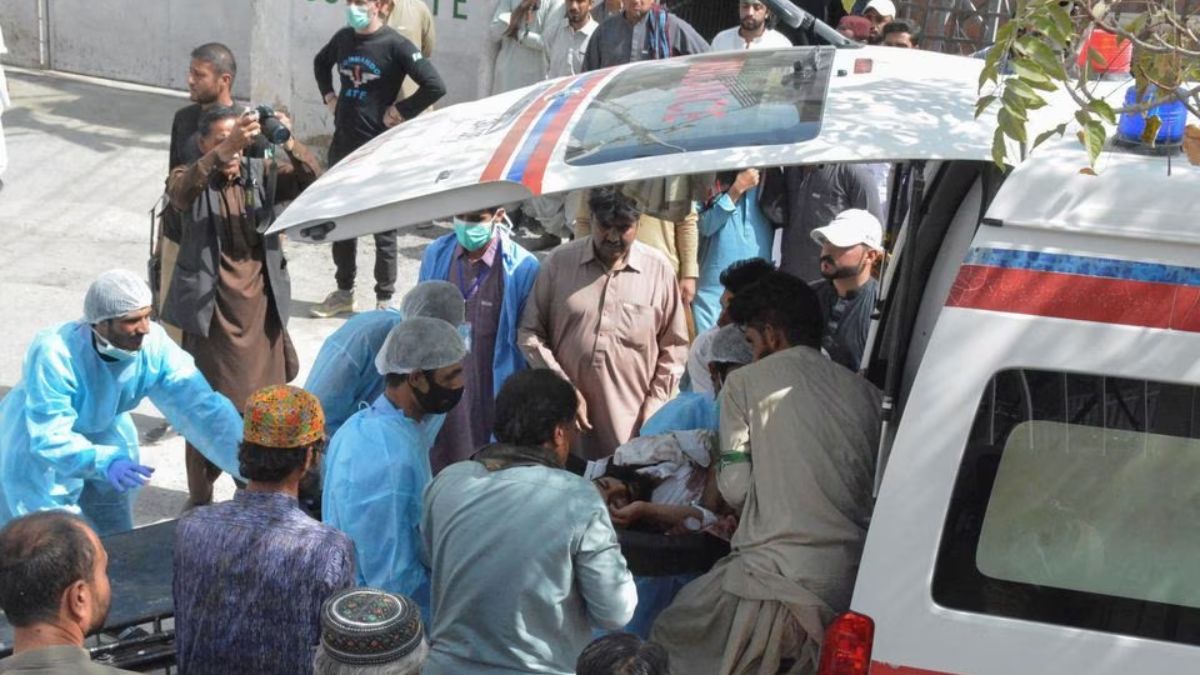
In a devastating and heart-wrenching turn of events, Pakistan witnessed two appalling suicide bombings on a fateful Friday. These gruesome acts claimed the lives of at least 57 innocent individuals, among them seven young children. The attacks occurred as worshippers gathered to commemorate the birthday of the revered Prophet Mohammad. The nation now mourns the loss of these lives and remains on high alert, grappling with the aftermath of this tragedy. This article delves into the details of these tragic events and their implications.
The First Tragedy: Mastung Mosque Attack
The first explosion unfolded in Mastung, a city in the southwestern province of Balochistan. A suicide bomber detonated his explosives in close proximity to a police vehicle, where people had congregated for a religious procession. Senior police official Munir Ahmed reported that at least 52 lives were tragically cut short in this attack, including seven children aged between nine and eleven. An additional 58 individuals were injured, many of whom cried out for assistance as chaos and despair enveloped the scene.
A Heroic Sacrifice
Tragically, among those who lost their lives was Deputy Superintendent of Police Nawaz Gishkori. He displayed immense courage by attempting to thwart the suicide bomber, but the attacker’s determination prevailed, resulting in a devastating loss for the community. Gishkori’s sacrifice serves as a stark reminder of the profound impact of these senseless acts of violence.
The Second Tragedy: Khyber Pakhtunkhwa Mosque Attack
The second attack occurred in the neighboring region of Khyber Pakhtunkhwa, where five individuals lost their lives. The attack involved two explosions, one at the mosque’s entrance and another within the compound. Tragically, the roof collapsed during the attack, leaving approximately 30 to 40 individuals trapped beneath the rubble, according to rescue officials.
The Ongoing Security Concern
These heinous acts of violence have cast a dark shadow over Pakistan, particularly as the nation prepares for the upcoming national election in January. Historically, militant attacks had predominantly targeted security forces, but the recent surge in attacks within western provinces has prompted heightened concerns regarding public safety and political stability.
The Bordering Challenge
It is noteworthy that both Balochistan and Khyber Pakhtunkhwa share borders with Afghanistan. Over the years, these regions have been plagued by attacks from Islamist militants who seek to undermine the Pakistani government and impose their extremist interpretation of Islamic law.
The Response of the Caretaker Government
Caretaker Prime Minister Anwar ul Haq Kakar, who was in Saudi Arabia for the Umrah pilgrimage at the time, swiftly condemned these horrendous bombings. He called for unwavering support for the victims and their families during this difficult time. Prime Minister Kakar’s caretaker government bears the responsibility of overseeing the national election scheduled for late January, a task that has become increasingly challenging due to the surge in militant activities.
The Ceasefire Fallout
The surge in militant attacks in Pakistan can be traced back to 2022 when a ceasefire between the government and the Tehreek-e-Taliban Pakistan (TTP), an umbrella organization of hardline Sunni Islamist groups, broke down. The TTP, responsible for some of Pakistan’s most devastating attacks since its formation in 2007, has denied involvement in these recent bombings.
Unanswered Questions
It is important to note that the TTP also denied responsibility for a police mosque bombing in Peshawar in January, an attack that claimed the lives of 100 people. However, a faction within the TTP later claimed responsibility for the horrific incident. In a similar vein, the Islamic State militant group claimed responsibility for a suicide bombing in Khyber Pakhtunkhwa in July, which resulted in the deaths of more than 40 individuals.
As Pakistan grapples with the aftermath of these devastating attacks, the nation remains resilient in the face of adversity. The loss of innocent lives, particularly those of children, serves as a stark reminder of the urgent need for peace and security. In these challenging times, unity and unwavering support for the victims and their families are more important than ever. The government’s efforts to ensure the safety of its citizens and the upcoming national election will undoubtedly be closely monitored, as Pakistan strives to overcome these trying circumstances.